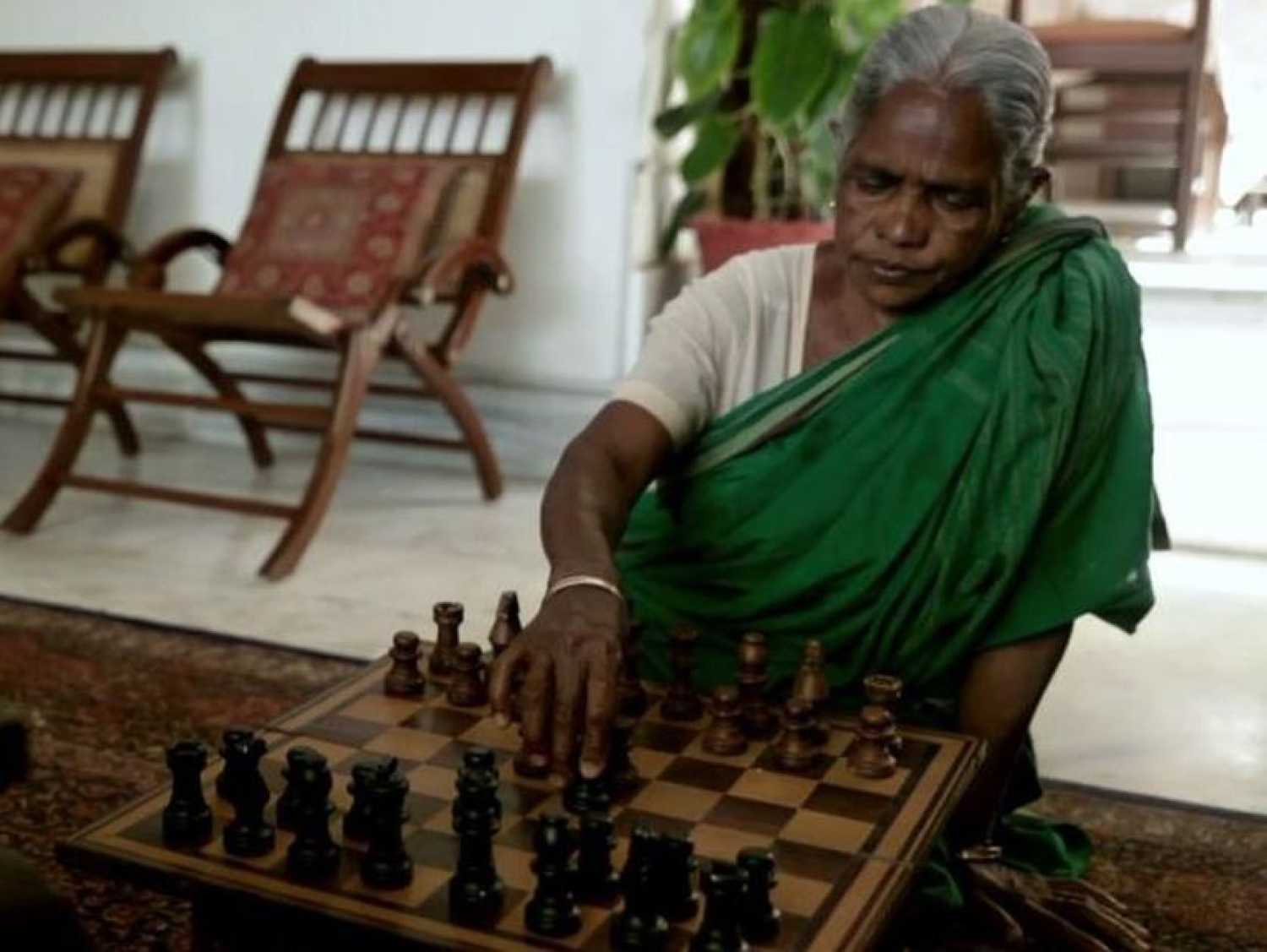The makers of Turup spoke at a question and answer session after its first screening at the 19th Mumbai Film Festival on 13 October.
Ektara Collective: Filmmaking is a socialist form and we need to preserve that
Mumbai - 14 Oct 2017 15:21 IST
Updated : 15 Oct 2017 20:32 IST


Sonal Pandya
The after-screening question and answer session with the Ektara Collective who have made Turup (Checkmate) was attend by Maheen Mirza (co-writer and cinematographer), Rinchin (co-writer), Pauloma Das (editor), Kaluram Bamniya and Dev Narayan Saroliya (Kabir singer-musicians) and Aakash Jamra (actor) amongst others and moderated by film critic and writer Bharadwaj Rangan. The unique film was not the vision of a director, but a collaborative effort of the local cast and crew who came together to democratically to create their first feature film.
Turup review: Delightful film about power play and political ebbs and flows
The Ektara Collective previously made two short films Chanda Ke Joote (2011) and Jaadui Machchi (2013). The crowdfunded film was made on an astonishing budget of little over Rs2 lakhs (no corporate funds, only individual donations) and is set in the Chakki Chouraha neighbourhood of Bhopal, Madhya Pradesh where the residents actually play chess all day long. Therefore, a film revolving around chess didn’t seem that far-fetched.
The music of the film got a huge response from the audience, and Rinchin explained that they showed Kaluram Bamniya and Dev Narayan Saroliya the film and they agreed to have their music accompany it. “The things that the film said, it was also what Kabir said. Dev Narayan ji and Kaluram ji are singers and they have been using Kabir to spread the message of peace and talk about caste and inequality,” she explained.
While the film used locals in the cast, there were only a handful of them who had prior training in acting. Workshops were held to help each other get used to the idea of acting. Aakash Jamra who plays Naresh and Madhu Bhagat who plays Lata had done theatre, while most of the actors were daily wage workers. Both Moulina Medde and Sheela Rawat are domestic workers; Medde worked in Habib Tanvir’s house. “Most people they were playing close to their life, but they were also acting,” Rinchin said.
After the film was completed it was screened at Chakki Chouraha where it was filmed; around 500 showed up.
The script combines relevant issues of caste and religion woven into a storyline of a local election. Those were chosen for a natural reason, co-writer Maheen Mirza said, “The narrative also tried to bring all of these elements, the actors and their representation in terms of their identities, what is happening around us today and the kind of environment we are looking at today and kind of polarisation that is happening.”
Furthermore, Rinchin stated that these elements should be reflected in today’s stories because “that’s life”. “How can they not be in the times we are living in?” she asked. The group themselves debated internally on a few of the storylines presented in the film.
Rinchin also herself wondered when watching films, why there aren’t more real stories about the problems people face. “If you have a couple and you have a servant in the background, there is no filmmaker who thinks that they should go back and look at this boy Raju who is constantly serving tea and going away,” she said.
The group said that most things cannot be done singularly and they couldn’t imagine making a film any other way. “Filmmaking, on its own, is a very socialist form and we need to preserve that,” Rinchin stated simply.
“Working in a collective, you have to cross the river so you take the plunge and you know that there are people around you and they are not going to allow you to sink,” Mirza said when asked about working collaboratively.
Turup is currently playing at the 19th Mumbai Film Festival.
Watch the trailer here:
Related topics
MAMI
